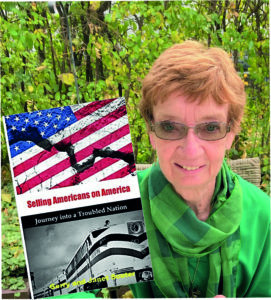 Janet Souter began writing short stories and eventually joined her husband in writing traditionally published histories, biographies, and fine arts books. Her career includes eight years at the Daily Herald newspapers where she served as a community news coordinator, a weekly columnist and feature writer. She co-authored the recently published book “Selling Americans on America” with her husband Gerry Souter.
Janet Souter began writing short stories and eventually joined her husband in writing traditionally published histories, biographies, and fine arts books. Her career includes eight years at the Daily Herald newspapers where she served as a community news coordinator, a weekly columnist and feature writer. She co-authored the recently published book “Selling Americans on America” with her husband Gerry Souter.
How did the writing of this book come about?
In 2015, we were hunting around for another writing project to pitch, so I thumbed through a book titled “The Columbia Chronicles of American Life 1910-1992”. I decided to check out the WWII post-war years, because it was a period we didn’t know a lot about. I found an item about the 1947 Freedom Train and how it traveled the country with original historical documents. We discovered there weren’t any books about it. From then on, we were hooked.
What did you find to be the best resources for your research?
A paper titled “Freedom Train: Citizenship and Postwar Political Culture”; several newspaper articles of the time, and references in books about the postwar period were valuable resources. Also, we found collateral material in the McLean County History Museum in Bloomington, IL. We couldn’t find anyone who had visited it, but one or two people had family photos taken with it.
What fascinated you about the book’s subject?
For me, it was the way that every town—over 300 of them—enthusiastically welcomed the train. They celebrated it with parades and pageantry during “Rededication Week” prior to the train’s arrival. Townspeople offered their services to the train’s staff, especially to the Marines who guarded it. I don’t know if there would be that much dedication today.
Will you describe some of the strife you discovered during the years 1947 to 1949 when the Freedom Train was crossing the U.S.?
Most of all, there was tremendous labor unrest. In 1946 alone and into 1947 there were more walkouts than at any other time in our history. President Truman wanted to continue the rationing that had been going on during war time. There was a housing shortage, coupled with inflation. People were tired; they wanted the good life.
The Freedom Train was privately funded by the advertising industry, civic groups, entertainers, and business leaders. It was also apolitical. How did you decipher their motivation and cooperation?
In addition to what I mentioned above, I believe there was an undercurrent of fear of “creeping socialism” or Communist infiltration. The people that made up the American Heritage Foundation (a different group than the AH today) wanted to re-ignite the nation’s patriotism so that “foreign ideologies” wouldn’t take hold. They saw the Freedom Train as the perfect messenger, believing “you can sell ideas as well as merchandise.”
Does writing now impact how you wrote about then?
Every book is different and has its own voice. For this book, we wanted to tell how the people were impacted by seeing the original documents that showed our fight to achieve and hold onto our rights and liberties.
Why was it important to include little-known historical facts in the book?
As always, we didn’t want to make this book a dull relating of facts. It is important for the reader to know the mindset of the period. We tried to tell some of that through particular incidents: Brooklyn teen-age girls “kissing” the train, leaving lipstick smudges on it. A woman who visited the train was heard commenting, “I bet the damn Russians don’t have anything like this.”
Have you seen any of the original documents, artifacts, or memorabilia that were on the train?
I recall seeing the Declaration of Independence and possibly the Constitution on a class trip to Washington when I was in high school. It is impressive to view a piece of paper that was touched by our Founding Fathers centuries ago.
Why did you decide to draw comparisons of then to now in the book?
It was a natural. In the 1940s people were unhappy with the way the country was going at the time, but they were worn out from all they endured through the Depression and the war. Today the unhappiness is divided along political lines. No one wants the divisiveness, but neither party or philosophy wants to meet the other halfway.
After writing the book, do you feel hopeful for America’s future?
I always feel hopeful for the future. In the past I’ve seen the pendulum swing the other way when situations become too extreme, which they certainly are today. But it will take several years, I think.
You have written nonfiction and fiction in many genres. Do you have a favorite?
For me, I especially like anything to do with American history.
What do you like most about traditional publishing?
We get paid upfront, either through an advance against royalties or work-for-higher. Neither pays a lot but we have worked with some wonderful people who recommend us to other publishers. As we all know, the publishing world has changed and we must adjust and re-think the process.
What are you working on now?
We’ve decided to concentrate on fiction, which doesn’t require travel or the need to find images. It can be frustrating, challenging and full of angst, but it can be fun too. I love doing the research.
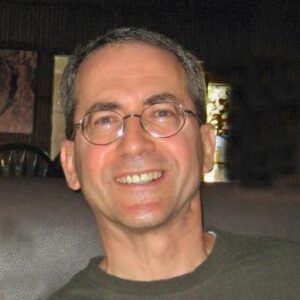 I’ve been drawn to writing strong female characters because I grew up with strong, clearly defined women. My mother moved to Chicago when she was 18 to work in early radio. After the start of World War II, she volunteered for the navy. She put herself through college to get her BS, masters, and PhD, as a single mom. My paternal grandmother got her bachelor’s degree in math in 1917 because she was told women couldn’t major in chemistry, her primary interest. I found myself in the care of quite a few women, most of whom were highly motivated, with well-defined personalities. I began writing from the female POV when a character in one of my stories dared me to write her story.
I’ve been drawn to writing strong female characters because I grew up with strong, clearly defined women. My mother moved to Chicago when she was 18 to work in early radio. After the start of World War II, she volunteered for the navy. She put herself through college to get her BS, masters, and PhD, as a single mom. My paternal grandmother got her bachelor’s degree in math in 1917 because she was told women couldn’t major in chemistry, her primary interest. I found myself in the care of quite a few women, most of whom were highly motivated, with well-defined personalities. I began writing from the female POV when a character in one of my stories dared me to write her story.
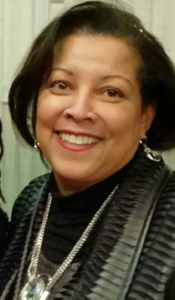
 Janet Souter began writing short stories and eventually joined her husband in writing traditionally published histories, biographies, and fine arts books. Her career includes eight years at the Daily Herald newspapers where she served as a community news coordinator, a weekly columnist and feature writer. She co-authored the recently published book “Selling Americans on America” with her husband Gerry Souter.
Janet Souter began writing short stories and eventually joined her husband in writing traditionally published histories, biographies, and fine arts books. Her career includes eight years at the Daily Herald newspapers where she served as a community news coordinator, a weekly columnist and feature writer. She co-authored the recently published book “Selling Americans on America” with her husband Gerry Souter.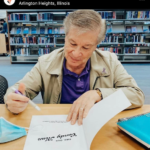
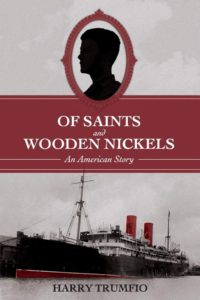
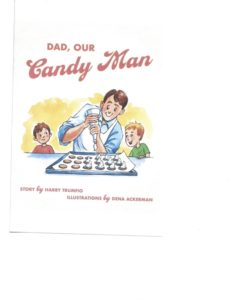
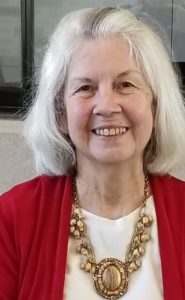 With a new year come lots of new beginnings. Author Georgann Prochaska talks about how she begins a story and how important good beginnings are. Georgann holds a degree in literature, taught high school English classes for 34 years, and has published seven books since 2014.
With a new year come lots of new beginnings. Author Georgann Prochaska talks about how she begins a story and how important good beginnings are. Georgann holds a degree in literature, taught high school English classes for 34 years, and has published seven books since 2014.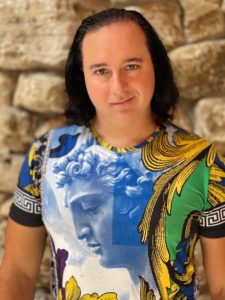
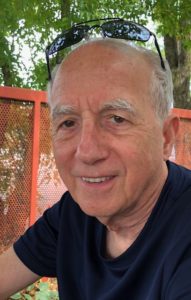
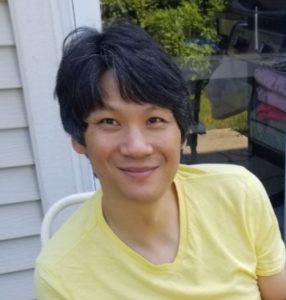
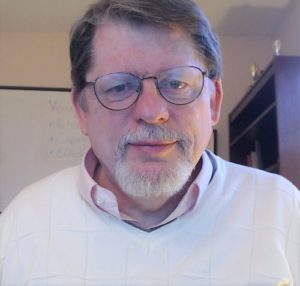 BWW member John Maxwell has not published any books yet. He is working on a young adult fiction story about a troubled boy who encounters an old wise man who agrees to take him down river in a canoe so the boy can reach his ailing mother. John is also working on a non-fiction book that shares the lessons he’s learned as a sales training mentor to small business owners. In this interview he shares his thoughts on the unromantic parts of being a not-yet published writer.
BWW member John Maxwell has not published any books yet. He is working on a young adult fiction story about a troubled boy who encounters an old wise man who agrees to take him down river in a canoe so the boy can reach his ailing mother. John is also working on a non-fiction book that shares the lessons he’s learned as a sales training mentor to small business owners. In this interview he shares his thoughts on the unromantic parts of being a not-yet published writer.